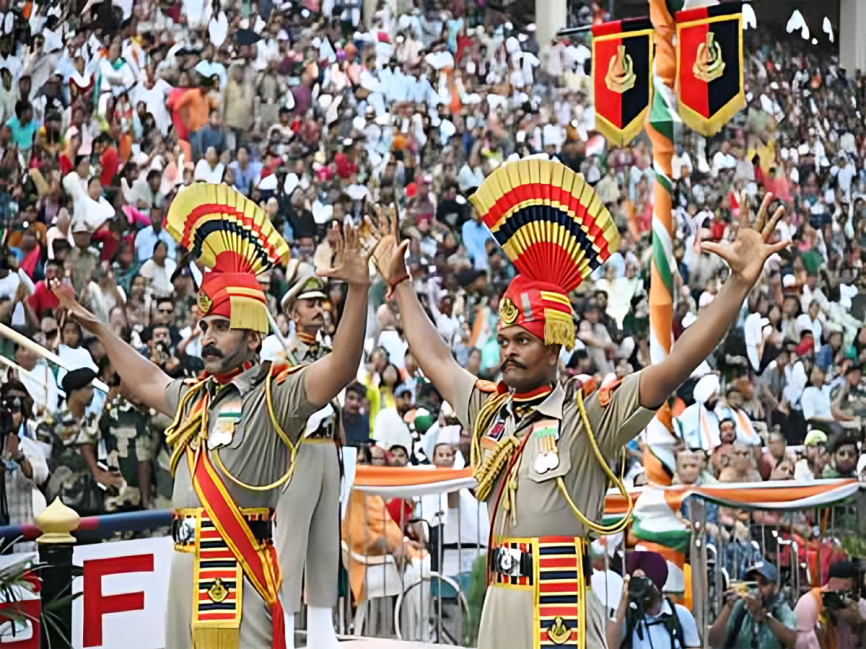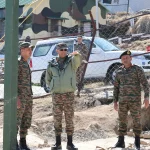The Border Security Force (BSF) has officially resumed the iconic Beating Retreat ceremony at three Joint Check Posts (JCPs) along the Punjab frontier, marking a return to tradition following a temporary suspension due to heightened security concerns. Starting today, the flag-lowering ritual will take place at 6 PM daily at the Attari-Wagah checkpoint in Amritsar district, Hussainiwala in Ferozepur, and Sadiqi in Fazilka.
The ceremony, celebrated for its military precision and cultural symbolism, had been halted since May 9 following the Pahalgam terrorist attack in Jammu and Kashmir that claimed the lives of 26 individuals, including foreign tourists. The tragedy, coupled with India’s swift military response under Operation Sindoor targeting alleged terrorist infrastructure across the border, led to heightened tensions between India and Pakistan. In response, border crossings were restricted, and the Beating Retreat ceremony—a tradition since 1959—was paused.
The event, featuring coordinated high-stepping drills, dramatic salutes, and synchronized flag-lowering by the BSF and Pakistan Rangers, has long drawn large crowds and served as a symbol of both patriotic pride and cross-border ritual. However, in the immediate aftermath of the attack, public sentiment in India turned sharply against the spectacle, with some critics describing it as inappropriate during a national crisis. The ceremony was scaled down, and the Integrated Check Post at Attari was closed, severely affecting trade and cross-border exchanges.
With tensions now easing, the BSF has decided to fully reinstate the ceremony and reopen public access beginning Wednesday, May 21. Officials anticipate high turnout as tourists and locals return to witness the powerful display of discipline and national pride. Security arrangements have been significantly enhanced, with measures in place to ensure the safety of spectators and prevent any disruption, especially in light of past incidents such as the 2014 suicide bombing at Wagah that left 60 dead.
The resumption of the Beating Retreat is being viewed as a gesture of resilience and a cautious step toward normalcy in bilateral ties. While diplomatic relations between India and Pakistan remain strained, the ceremony’s return underscores the enduring significance of tradition, cultural expression, and public engagement at one of the most sensitive international borders in the world.













